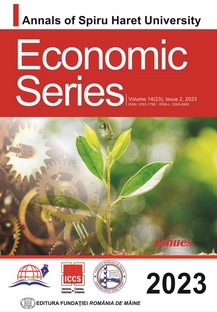INCOME INEQUALITY, CLIENTELISM AND GOVERNANCE: IMPLICATIONS FOR SOCIOECONOMIC DEVELOPMENT IN WEST AFRICA
INCOME INEQUALITY, CLIENTELISM AND GOVERNANCE: IMPLICATIONS FOR SOCIOECONOMIC DEVELOPMENT IN WEST AFRICA
Author(s): Abiodun Samuel Isayomi, Olumide O. Omodunbi, Bamidele Pereowei AbalabaSubject(s): Governance, Economic development, Socio-Economic Research
Published by: Editura Fundaţiei România de Mâine
Keywords: Inequality; Clientelism; Development; Governance; West Africa; ARDL;
Summary/Abstract: Genuine redistribution of income is usually not commonplace in underdeveloped democracies. Instead, politicians in these democracies often target private, excludable and reversible benefits at the poor in exchange for electoral support. This electoral strategy often results in a situation where maintenance of political power or re-election becomes the focus of public policies instead of public welfare. This study investigated the main and interaction effects of income inequality and clientelism on government effectiveness in West African Countries from 1996 to 2020. The study objectives were achieved using pooled mean group (PMG) approach of the panel autoregressive distributed lag (ARDL) estimation technique and the Dumitrescu Hurlin panel causality test. Findings from the study revealed that clientelism enhances government effectiveness at higher levels of income inequality but inhibits government effectiveness at lower levels income inequality. The study findings also revealed positive relationship and uni-directional causality between income inequality and clientelism. The study concluded that government effectiveness which thrives on lower levels of income inequality and clientelism is beneficial to socioeconomic development; and that socioeconomic development and government effectiveness is interdependent and mutually reinforcing.
Journal: Annals of Spiru Haret University. Economic Series
- Issue Year: 23/2023
- Issue No: 1
- Page Range: 146-166
- Page Count: 21
- Language: English

